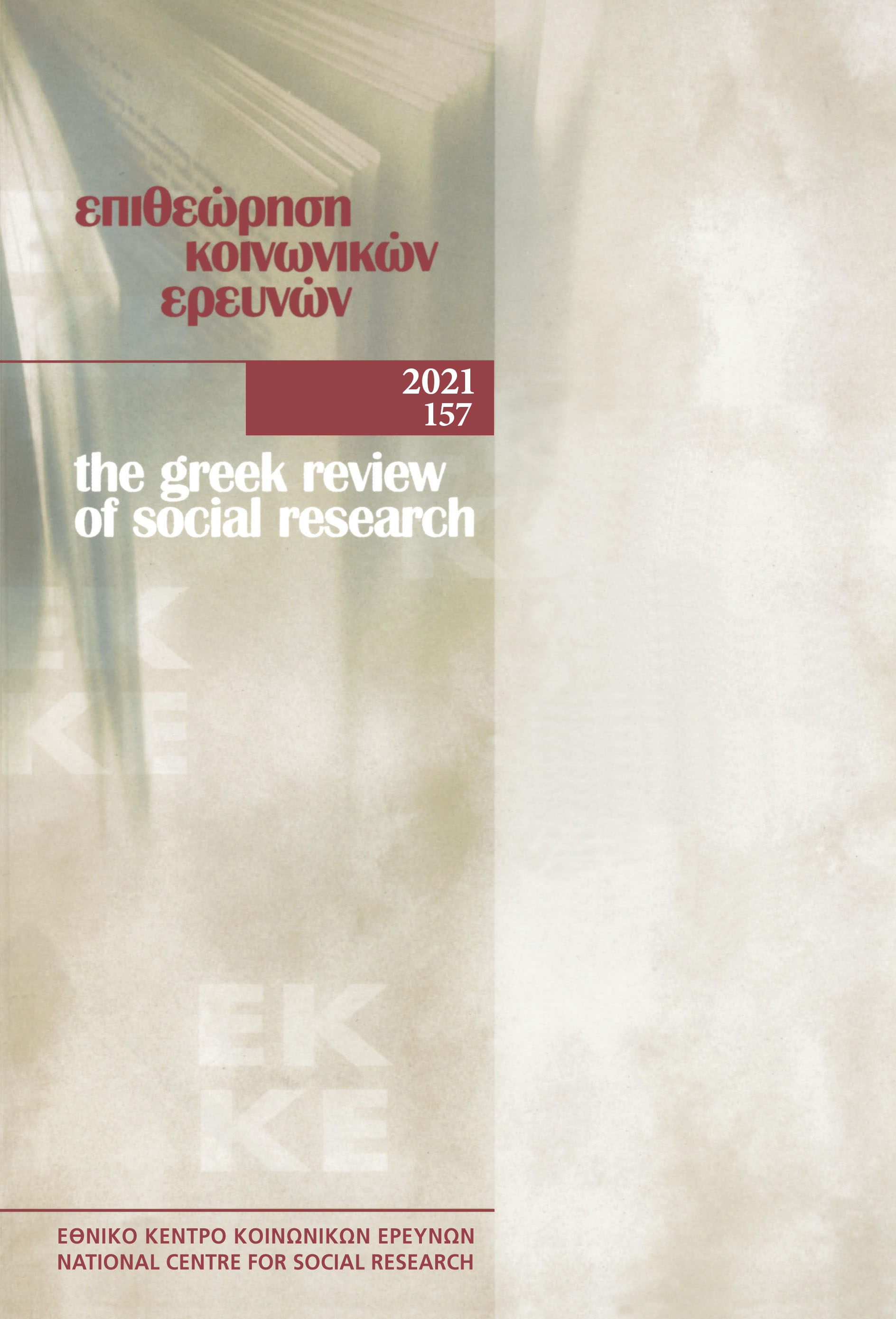Η επικαιρότητα της κριτικής θεωρίας: υπάρχουν επιχειρήματα επιστημολογικής καινοτομίας;

Περίληψη
Σκοπός του άρθρου είναι να μελετήσει το πώς η κριτική θεωρία υιοθετεί τη μεθοδολογία της διεπιστημονικότητας ως τον καινοτόμο τρόπο ανταλλαγής επιχειρημάτων ανάμεσα στις επιστήμες και να ερευνήσει εάν υπάρχουν καινοτόμα επιχειρήματα στην επιστημολογία της κριτικής θεωρίας κατά τον εικοστό πρώτο αιώνα. Η κριτική την οποία αναπτύσσει το άρθρο επί των επιστημολογικών τάσεων της ύστερης νεωτερικότητας υποστηρίζει πως η κύρια διάκριση ανάμεσα στη σύγχρονη επιστημολογία και την κριτική θεωρία έγκειται στην κατανόηση της κανονιστικότητας και του ορθολογισμού. Η εν λόγω διάκριση μπορεί να χαρακτηρισθεί ως η «μάχη» της νεωτερικής επιστημολογίας υπέρ ή κατά του επιστημονικού και πολιτικού ορθολογισμού.
Λεπτομέρειες άρθρου
- Πώς να δημιουργήσετε Αναφορές
-
Marinopoulou, A. (2021). Η επικαιρότητα της κριτικής θεωρίας: υπάρχουν επιχειρήματα επιστημολογικής καινοτομίας;. Επιθεώρηση Κοινωνικών Ερευνών, 157, 127–155. https://doi.org/10.12681/grsr.27620
- Τεύχος
- 2021: 157
- Ενότητα
- Άρθρα

Αυτή η εργασία είναι αδειοδοτημένη υπό το CC Αναφορά Δημιουργού – Μη Εμπορική Χρήση 4.0.
Οι συγγραφείς των άρθρων που δημοσιεύονται στην Επιθεώρηση Κοινωνικών Ερευνών διατηρούν τα δικαιώματα πνευματικής ιδιοκτησίας επί των άρθρων τους, δίνοντας στο περιοδικό το δικαίωμα της πρώτης δημοσίευσης. Άρθρα που δημοσιεύονται στην Επιθεώρηση Κοινωνικών Ερευνών διατίθενται με άδεια Creative Commons 4.0 και σύμφωνα με την άδεια μπορούν να χρησιμοποιούνται ελεύθερα, με αναφορά στο/στη συγγραφέα και στην πρώτη δημοσίευση για μη κερδοσκοπικούς σκοπούς.
Το Εθνικό Κέντρο Κοινωνικών Ερευνών διατηρεί το δικαίωμα να δημοσιεύει, να αναπαραγάγει, να παρουσιάζει στο κοινό, να διανέμει και χρησιμοποιεί άρθρα που δημοσιεύονται στην Επιθεώρηση Κοινωνικών Ερευνών σε οποιοδήποτε μέσο και μορφή είτε μεμονωμένα είτε ως μέρη συλλογικών έργων, για όλο τον χρόνο διάρκειας προστασίας της πνευματικής ιδιοκτησίας και για όλες τις χώρες του κόσμου. Αυτό περιλαμβάνει ενδεικτικά και όχι αποκλειστικά το δικαίωμα δημοσίευσης των άρθρων σε τεύχη της Επιθεώρησης Κοινωνικών Ερευνών, αναπαραγωγής και διανομής μεμονωμένων αντιγράφων των άρθρων, αναπαραγωγής ολόκληρων των άρθρων σε άλλη έκδοση του Εθνικού Κέντρου Κοινωνικών Ερευνών, καθώς και αναπαραγωγής και διανομής των άρθρων ή περίληψης αυτών με χρήση πληροφορικού συστήματος αποθετηρίου.


